Exploring Gardeners Kew: A Comprehensive Guide
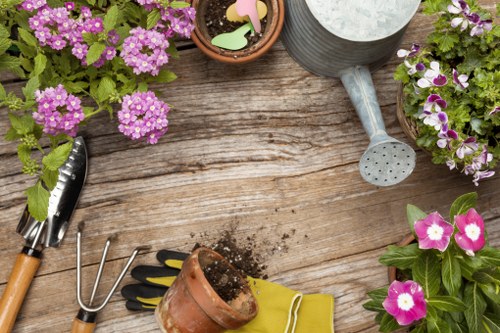
Gardeners Kew represents a vibrant community dedicated to the art and science of gardening at the renowned Royal Botanic Gardens, Kew. Situated in the heart of London, Kew Gardens is a UNESCO World Heritage site that attracts millions of visitors each year, offering a plethora of plant collections, stunning landscapes, and educational opportunities.
For both novice and experienced gardeners, Kew serves as an inspirational hub, providing resources, workshops, and events aimed at fostering a deeper appreciation for horticulture. The collaboration between Kew Gardens and local gardening enthusiasts creates a thriving environment where knowledge and passion for plants flourish.
In this article, we delve into the various aspects that make Gardeners Kew a cornerstone of the gardening community, exploring its history, key attractions, educational programs, and the interconnectedness with nearby areas.
The Rich History of Gardeners Kew
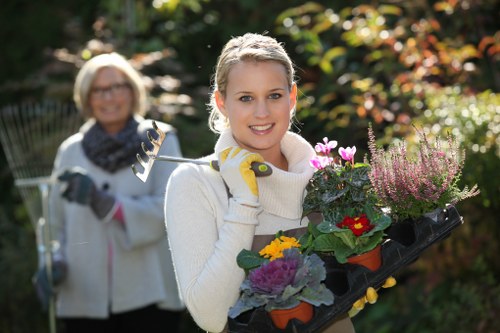
Gardeners Kew traces its roots back to the establishment of the Royal Botanic Gardens in the mid-18th century. Founded by Sir Joseph Banks and Dr. Humphry Marshall, the gardens were initially created to cultivate medicinal plants and support botanical research. Over centuries, Kew evolved into a leading institution for plant science and conservation.
The role of gardeners at Kew has always been pivotal. These dedicated individuals manage extensive plant collections, conduct research, and ensure the preservation of diverse species from around the globe. Their expertise not only enhances the beauty of the gardens but also contributes to global efforts in plant conservation and sustainability.
Today, Gardeners Kew continues this legacy by integrating traditional gardening practices with modern techniques, fostering innovation while maintaining a deep respect for nature’s intricacies.
Key Milestones in Kew's Development
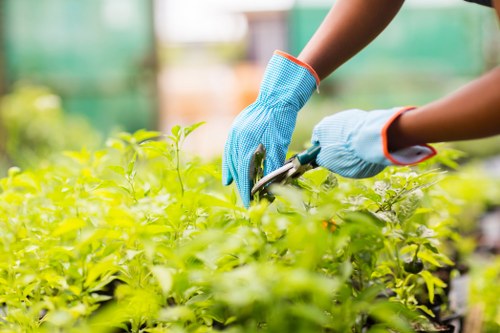
- 1759: Establishment of the Royal Botanic Gardens by Sir Joseph Banks.
- 1840: Introduction of glasshouses to accommodate diverse plant species.
- 2003: Designation as a UNESCO World Heritage site.
- 2018: Opening of the Kew Science Environmental Information Centre.
These milestones reflect the ongoing commitment of Gardeners Kew to excellence in horticulture, research, and public education.
Each development phase has brought new opportunities for gardeners to engage with the environment, expand their knowledge, and contribute to important botanical studies.
Exploring the Attractions at Kew Gardens
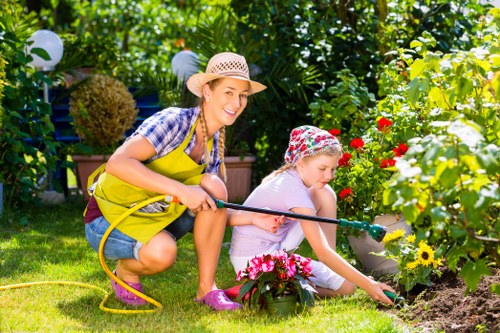
Kew Gardens is home to an array of attractions that captivate visitors and gardeners alike. From expansive plant collections to architecturally stunning glasshouses, there is something for everyone to enjoy.
Major Attractions Include:
- The Palm House: A Victorian glasshouse housing a diverse range of tropical plants.
- The Waterlily House: Featuring an exquisite collection of aquatic plants.
- The Treetop Walkway: Offering panoramic views of the gardens from elevated trails.
- The Kew Palace: A historic residence that provides insight into the royal connection with the gardens.
These attractions not only serve as visual masterpieces but also as educational tools that highlight the importance of plant diversity and conservation.
Gardeners Kew often utilizes these spaces for workshops, guided tours, and interactive sessions, enhancing the learning experience for all visitors.
Plant Collections and Conservation Efforts
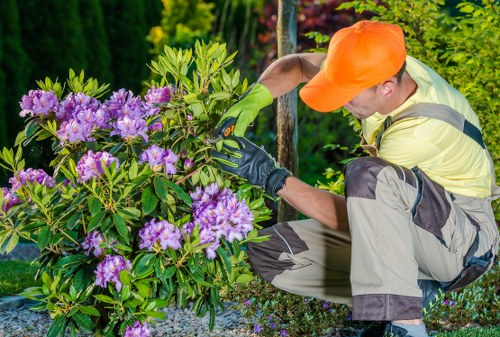
- Living Collections: Over 50,000 plant species representing various ecosystems.
- Seed Bank: A comprehensive archive safeguarding plant genetic material.
- Conservation Programs: Initiatives focused on protecting endangered species.
- Research Facilities: State-of-the-art labs dedicated to botanical studies.
Gardeners Kew plays a crucial role in maintaining these collections, ensuring that each plant is meticulously cared for and studied.
Through collaborative efforts, Kew contributes to global sustainability by promoting plant health, combating invasive species, and fostering ecological balance.
Educational Programs and Community Engagement

Education lies at the core of Gardeners Kew’s mission. The gardens offer a variety of programs aimed at different age groups and skill levels, fostering a lifelong love for gardening and plant science.
- Workshops and Classes: Covering topics like sustainable gardening, plant identification, and horticultural techniques.
- School Programs: Engaging students with hands-on activities and interactive learning experiences.
- Volunteer Opportunities: Allowing community members to contribute to garden maintenance and research projects.
- Public Lectures and Seminars: Featuring experts in botany, ecology, and environmental science.
These educational initiatives are designed to empower individuals with the knowledge and skills needed to cultivate their own gardens while understanding the broader impact of horticulture on the environment.
Community engagement is further strengthened through events such as garden tours, seasonal festivals, and collaborative projects with local organizations.
Resources for Gardeners

- Library: A vast collection of books, journals, and digital resources on gardening and plant science.
- Online Platforms: Providing virtual tours, tutorials, and forums for gardeners to connect.
- Plant Database: Comprehensive information on various plant species, care instructions, and propagation methods.
- Tool Lending Library: Offering access to gardening tools and equipment for community members.
These resources ensure that gardeners have access to the latest information and tools necessary for successful gardening endeavors.
By leveraging both physical and digital platforms, Gardeners Kew makes knowledge accessible to a broader audience, encouraging continuous learning and growth.
Community and Volunteer Opportunities

Gardeners Kew thrives on the active participation of volunteers and community members. Volunteers play a vital role in maintaining the gardens, assisting with research projects, and supporting educational programs.
- Volunteer Programs: Offering various roles from garden maintenance to administrative support.
- Community Gardens: Providing spaces for local residents to cultivate their own plants and share gardening experiences.
- Events and Festivals: Involving volunteers in organizing and managing public events.
- Research Assistance: Engaging volunteers in data collection and analysis for ongoing studies.
These opportunities not only benefit the gardens but also foster a sense of community and shared purpose among participants.
Gardeners Kew values the contributions of its volunteers, recognizing that their dedication is integral to the gardens’ success and sustainability.
Collaborations and Partnerships

- Academic Institutions: Partnering with universities for research and educational programs.
- Environmental Organizations: Collaborating on conservation and sustainability initiatives.
- Local Businesses: Engaging in sponsorships and community projects.
- International Bodies: Working together on global plant conservation efforts.
These collaborations enhance the resources and impact of Gardeners Kew, enabling broader outreach and more significant contributions to the field of horticulture.
By fostering strong partnerships, Kew Gardens extends its influence beyond local boundaries, supporting global efforts in plant science and environmental stewardship.
Innovations in Gardening at Kew

Gardeners Kew is at the forefront of innovation in gardening practices. By integrating technology with traditional methods, Kew continuously evolves to meet the challenges of modern horticulture.
- Smart Gardening Tools: Utilizing sensors and automation to optimize plant care.
- Sustainable Practices: Implementing water conservation, organic pest management, and renewable energy sources.
- Research and Development: Exploring new plant varieties and propagation techniques.
- Educational Technology: Enhancing learning through virtual reality tours and interactive apps.
These innovations not only improve the efficiency and effectiveness of gardening practices but also inspire gardeners to adopt sustainable and forward-thinking approaches.
By embracing change and encouraging experimentation, Gardeners Kew fosters a dynamic environment where new ideas can take root and grow.
Future Directions

Looking ahead, Gardeners Kew is poised to expand its initiatives in plant conservation, community engagement, and scientific research. Future plans include:
- Expanding Plant Collections: Introducing new species and expanding existing collections.
- Enhancing Visitor Experience: Developing new attractions and interactive exhibits.
- Strengthening Global Partnerships: Collaborating with international institutions on conservation projects.
- Promoting Sustainability: Implementing more green practices across all operations.
These directions ensure that Gardeners Kew remains a leader in the gardening and botanical community, continuously contributing to the preservation and appreciation of plant life.
By focusing on sustainability and innovation, Kew Gardens aims to create a lasting positive impact on both the local and global environment.
Nearby Areas to Kew: Enhancing the Gardening Experience

Kew Gardens is surrounded by several notable areas that offer additional attractions and resources for gardeners and visitors.
- Richmond: Known for its beautiful parks and river views, Richmond is a perfect spot for leisurely garden walks.
- Brentford: Offers a blend of historical sites and modern amenities, including local nurseries.
- Twickenham: Famous for its rugby stadium and scenic riverside gardens.
- Mortlake: Features tranquil green spaces and community gardens.
- Hampton: Home to Hampton Court Palace and extensive gardens.
- Syon Park: Boasts magnificent gardens and a grand estate.
- Westminster: Offers botanical displays and public garden areas.
- Chiswick: Known for its charming residential gardens and local plant shops.
- Battersea: Features Battersea Park with its diverse plant collections.
- Shepherd's Bush: Provides access to urban gardening projects and community initiatives.
Each of these areas brings its unique flavor to the gardening landscape, offering additional opportunities for exploration, learning, and enjoyment.
By visiting these nearby locations, gardeners can expand their horizons, discover new plant varieties, and engage with a broader community of enthusiasts.
Connecting with the Local Community

- Local Plant Shops: Supporting small businesses that offer unique plants and gardening supplies.
- Community Gardens: Encouraging shared gardening spaces where residents can collaborate.
- Workshops and Events: Participating in local events to learn and share gardening knowledge.
- Gardening Clubs: Joining clubs to connect with fellow gardeners and exchange tips.
These community connections enhance the overall gardening experience, providing support, inspiration, and camaraderie among enthusiasts.
Gardeners Kew actively fosters these relationships, recognizing the importance of a connected and engaged community in the success of horticultural endeavors.
Conclusion: The Impact of Gardeners Kew

Gardeners Kew stands as a beacon of horticultural excellence, blending history, innovation, and community engagement to create a thriving environment for plant lovers. Through its extensive collections, educational programs, and collaborative efforts, Kew Gardens continues to inspire and educate gardeners from all walks of life.
The commitment to plant conservation and sustainable practices ensures that Gardeners Kew not only beautifies the present but also safeguards the future of our planet’s botanical diversity.
Whether you are a seasoned gardener or simply an admirer of nature’s beauty, Gardeners Kew offers a wealth of resources and experiences to enrich your understanding and appreciation of the natural world.
Embracing the Future

As we look to the future, the role of Gardeners Kew becomes increasingly vital in addressing environmental challenges and promoting sustainable living. By continuing to innovate and engage with the community, Kew Gardens is poised to remain at the forefront of horticultural advancements.
The ongoing dedication to education, conservation, and community building ensures that Gardeners Kew will continue to thrive, inspiring generations of gardeners and environmental stewards for years to come.
Frequently Asked Questions
1. What is Gardeners Kew?
Gardeners Kew refers to the community and initiatives associated with the Royal Botanic Gardens, Kew. It encompasses gardeners, researchers, and enthusiasts dedicated to horticulture and plant science.
2. How can I visit Kew Gardens?
Kew Gardens is open to the public year-round. Visitors can purchase tickets online or at the entrance. It's advisable to check the official website for opening hours and any special events.
3. Are there volunteer opportunities at Kew Gardens?
Yes, Gardeners Kew offers various volunteer programs. Volunteers can assist with garden maintenance, research projects, and educational events. Interested individuals can apply through the Kew Gardens website.
4. What educational programs are available at Kew?
Kew Gardens provides a wide range of educational programs, including workshops, classes, school programs, and public lectures. These programs cater to different age groups and skill levels.
5. How does Kew Gardens contribute to plant conservation?
Kew Gardens plays a significant role in plant conservation through its seed bank, living collections, and research initiatives. The institution collaborates globally to protect endangered species and promote sustainable practices.
